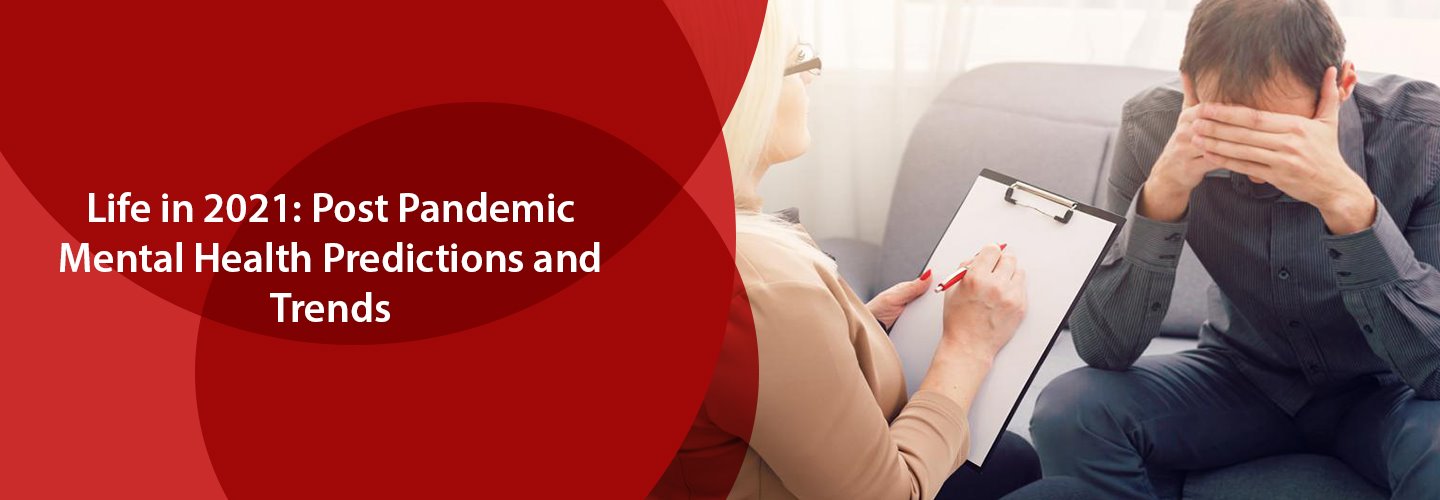The coronavirus pandemic crisis posed the greatest threat to mental health since the World War, says the country’s leading psychiatrist. More than 10 million people including 1.5 million children will need additional or new mental health support due to the pandemic.
The President of the Royal College of Psychiatrists, Dr. Adrian James said that a combination of the disease caused social and economic fallout. These consequences have an effect on mental health that would have an impact long after the epidemic.
A large number of children requiring mental health support are at risk of depression and anxiety due to social isolation, hospitalization, death of family members, and quarantine.
Mental Health Conditions in 2020
In the early times of the pandemic, 28% of respondents in the United States reported that their mental health is their main worry during the coronavirus pandemic. In April, people around the age of 18-29 years showed the highest levels of psychological distress in the country.
Moreover, from June 24 to June 30 around 20% of adult Americans part of the survey having professional degrees reported having symptoms of depressive and anxiety disorders.
The biggest fall out of the economy became the major reason for increased anxiety and depression. From June 24 to 30 more than 48% of unpaid adult caregivers reported experiencing anxiety disorders related to the pandemic.
While this was all that happened in 2020, experts have predicted mental health trends for the coming year. Here’s how it goes:
Remote Working Norms
Pandemic has completely changed how we used to work. The shift in work mode has added pressure to the already stressed-out working class in the country.
During the pandemic, businesses were struggling with an economic slowdown and more. However, in the post-pandemic world, the businesses are now recovering from the crisis they suffered.
With the New Year, business leaders are predicted to hop on to different trends to make sure their business survives in 2021. One such trend will be normalizing remote working.
A large number of business leaders are already working on making remote working a permanent work mode for their company. US-based Enterprise Technology Research has reported that a major percentage of remote workers will double from 16.4% before the virus outbreak to 34.4% in the New Year.
To meet the demand for remote working, business leaders and employees were ensuring the use of high-speed internet service in their homes.
In the United States, high-speed service providers like Hughesnet are providing exceptional service at affordable rates. Hughesnet in my area and across the United States provides the best deals and packages to enjoy high-speed internet service to make remote working easier.
This increase in remote working will have a direct impact on employee mental health.
Employee Mental Health will Get Prioritize
According to OnePoll 6 in 10 of 2,000 Americans reported being “zoomed out” 12 weeks into the coronavirus pandemic.
The survey concluded that the average person spent two hours and forty minutes looking into a screen while 68% of the survey respondents said that Zoom has become additional stress in their lifestyle.
Not only that but as per the LHH survey report 92% of respondents experienced burned out in November. Most importantly, mental health and emotional well-being have taken a step back dropping to their lowest since 2001, as per Gallup Poll report.
The report also predicted that offices now operating virtually will take the new challenge of prioritizing health and mental health remotely. One way for companies to do that is by encouraging employees to take benefit of mental health days, vacations, and PTO.
The Shift in Health Lifestyle
Another survey on 1,012 Americans by Gelesis revealed that 71% of respondents gained weight during the pandemic.
Repoojdets reported that an increase in their body weight has added mental stress and fatigue in their lifestyle.
52% of respondents felt down about their appearance. Also, 47% reported having lower self-esteem as the impact of weight gain.
The good part is that 51% of respondents in the survey are hoping to lose weight in 2021.
Start Working From Today
There was a lot that we were restricted from doing in 2020. But 2021 would have a whole lot of opportunities for you to fix your lifestyle. Once you get hold of how you live in the New Year, you will effect a good change in your mental health condition as well.





